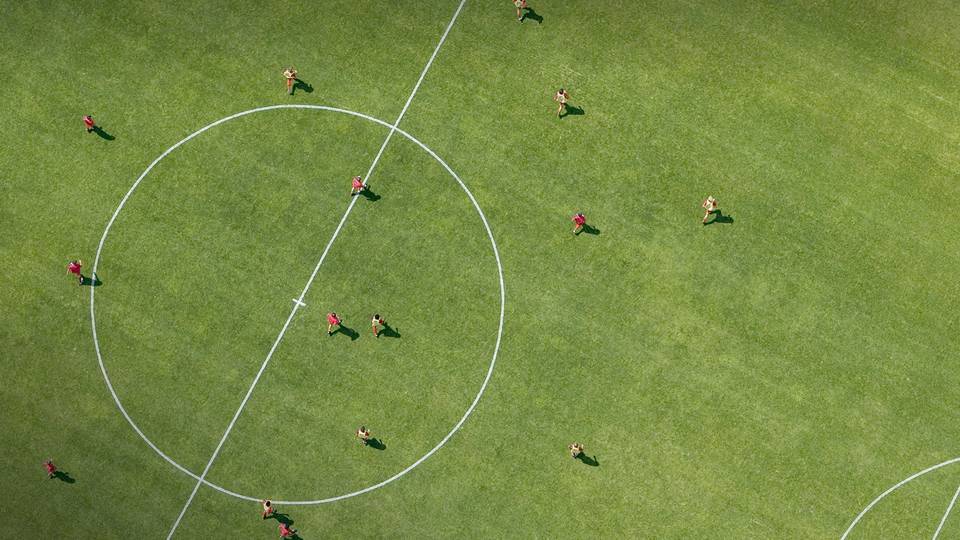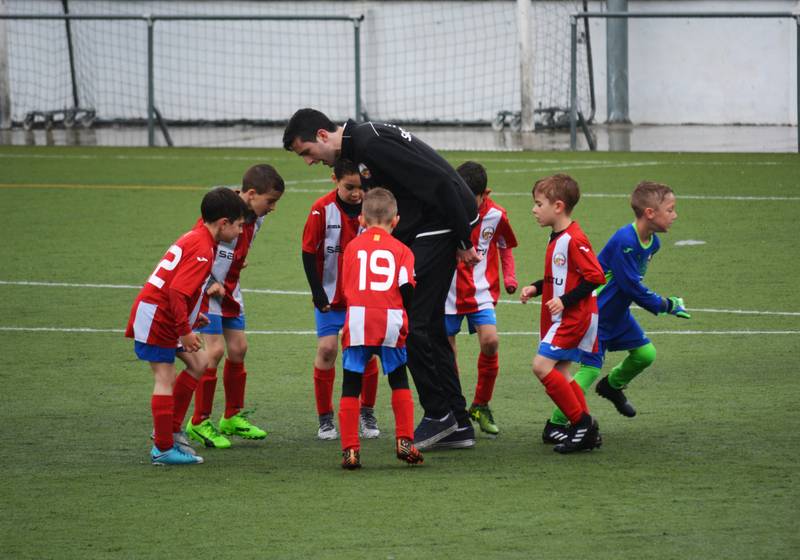Developing young footballers at the U9 level requires a thoughtful approach that balances technical skill development with fun, engaging activities. Football training for 9-year-olds should focus on core techniques through game-like scenarios rather than repetitive drills, ensuring children remain enthusiastic while building fundamental skills. Effective U9 football training incorporates age-appropriate exercises that promote technique, decision-making, and creativity while maintaining a playful atmosphere where young players can thrive.
Quality training sessions for this age group should include a variety of short, technical activities that improve ball control, passing accuracy, and basic tactical understanding. Many coaches find success using small-sided games that naturally encourage multiple touches on the ball and constant decision-making. These game-based approaches help children develop football intelligence in realistic situations rather than isolated skill practice.
The foundation built during the U9 stage can significantly impact a child's long-term development in the sport. By creating training environments that prioritise enjoyment alongside skill acquisition, coaches can nurture both technical ability and a lasting love for football. In some regions, including parts of the UK, you might hear the term soccer used interchangeably, but the training principles remain consistent regardless of terminology.
Foundations of U9 Football Training
Training sessions for U9 players should focus on fundamental skill development and enjoyment of the game. These young players are at a critical stage where proper technical foundations can set them up for future success.
Understanding U9 Developmental Stages
Children at the U9 level are typically 8-9 years old and in a prime phase for learning new technical skills. Their cognitive development allows them to understand basic tactical concepts, though their attention spans remain relatively short.
At this age, players show increasing body control and coordination but may struggle with consistency. They're naturally enthusiastic and eager to please coaches.
Many U9s are still developing their sense of spatial awareness and understanding of group dynamics. Training should accommodate their physical growth by offering frequent breaks and avoiding excessive repetition.
The FUNdamentals approach is particularly effective at this stage, blending enjoyable activities with skill acquisition. Coaches should create environments where mistakes are viewed as learning opportunities rather than failures.
Developing Basic Motor Skills
U9 training sessions should prioritise fundamental motor skills development through varied activities that challenge balance, coordination, and agility. Ball mastery exercises are essential, focusing on both feet to develop bilateral coordination.
Simple drills using cones, flat disks and small hurdles help improve footwork and spatial awareness. Sessions should include regular ball touches - dribbling, turning, stopping and starting with control.
Short, dynamic activities lasting 2-3 minutes maintain engagement while developing crucial skills. Ball control exercises should progress gradually from stationary practice to movement-based activities.
Individual technical work should be balanced with small-sided games (4v4 or 3v3) that naturally encourage decision-making. Implementing training stations where players rotate every few minutes helps maintain focus while developing different skill sets.
Speed and agility work should be incorporated into football-specific contexts rather than as isolated drills. This approach ensures motor skills development remains relevant to match situations that young players will encounter.
Structuring Effective Training Sessions
The foundation of any successful U9 football programme lies in well-structured training sessions. Proper organisation ensures young players develop essential motor skills while maintaining engagement and enjoyment throughout each session.
Warm-Ups and Cool-Downs
Effective warm-ups for U9 players should be fun and dynamic, lasting approximately 10-15 minutes. Begin with light jogging exercises such as tag games or follow-the-leader to raise heart rates gradually.
Include basic stretching movements that young players can easily understand and execute. Focus on major muscle groups using child-friendly terms like "reach for the sky" for arm stretches.
Ball-based warm-up activities serve dual purposes by developing coordination while preparing bodies for exercise. Activities like dribbling through cones or simple passing circles connect players with the ball early.
Cool-downs should incorporate gentle stretching and low-intensity activities. This helps young bodies recover properly and establishes good habits for future development.
Skill Drills and Practice Games
Structure skill development around age-appropriate challenges that build confidence. The "Three Rs approach" (repetition, rhythm, reinforcement) works particularly well with U9 players who thrive on consistency.
Key Skill Drills:
- Ball mastery exercises (toe taps, sole rolls)
- Basic passing triangles in small groups
- Simple 1v1 dribbling challenges
- Shooting activities with minimal queue time
Small-sided games are essential for practical application of skills. Games like 3v3 or 4v4 maximise touches and decision-making opportunities for each player.
Utilise a play-practice-play template to sandwich focused skill work between game scenarios. This approach maintains engagement while ensuring technical elements receive proper attention.
Physical Conditioning
At the U9 level, physical conditioning should occur naturally through game-based activities rather than isolated exercises. Football-specific movements develop coordination and foundational fitness more effectively than traditional conditioning.
Circuit-style activities incorporating short bursts of movement (5-10 seconds) followed by recovery promote appropriate anaerobic development. These might include:
- Quick footwork ladders
- Short sprints to collect and return balls
- Small hurdles or agility poles challenges
Rest periods between activities are crucial. Young players need adequate recovery time, typically a 3:1 ratio of rest to activity for intensive exercises.
Monitor energy levels throughout the session and be prepared to adjust intensity. Fatigue in U9 players manifests through diminished technique and attention rather than obvious physical exhaustion.
Coaching and Support
Effective coaching and appropriate adult support are fundamental elements in U9 football development. These young players rely on quality guidance to build both technical skills and positive attitudes toward the sport.
Role of Adult Members in Youth Soccer
Adults play crucial roles beyond simply supervising training sessions. Coaches should focus on developing fundamental skills while maintaining a fun atmosphere. At the U9 level, children need encouragement rather than criticism.
Parent volunteers are invaluable assets to any youth team. They can assist with equipment setup, provide administrative support, and help manage training stations during practice sessions.
The most effective adult members establish clear boundaries and expectations. They model respectful behaviour and demonstrate patience when players make mistakes. This approach builds trust with young players.
In the UK, many football associations offer coaching qualifications specifically designed for those working with younger age groups. These courses emphasise age-appropriate drills and developmental considerations for U9 players.
Creating a Positive Team Environment
A supportive team atmosphere significantly impacts player development and retention. Coaches should implement a "mistakes are okay" policy where children feel safe to try new skills without fear of ridicule.
Training sessions should incorporate plenty of ball contact time. Small-sided games with 3v3 or 4v4 formats allow more touches and decision-making opportunities than full-pitch activities.
Positive reinforcement works better than criticism. Celebrate effort and improvement rather than focusing solely on results. This builds confidence in young players.
Team-building activities help develop social skills alongside football abilities. Simple games that require cooperation teach valuable lessons about teamwork.
Rotation of positions prevents early specialisation and helps players develop a more rounded understanding of the game. This approach is widely endorsed by youth soccer development experts and supports long-term player development.












